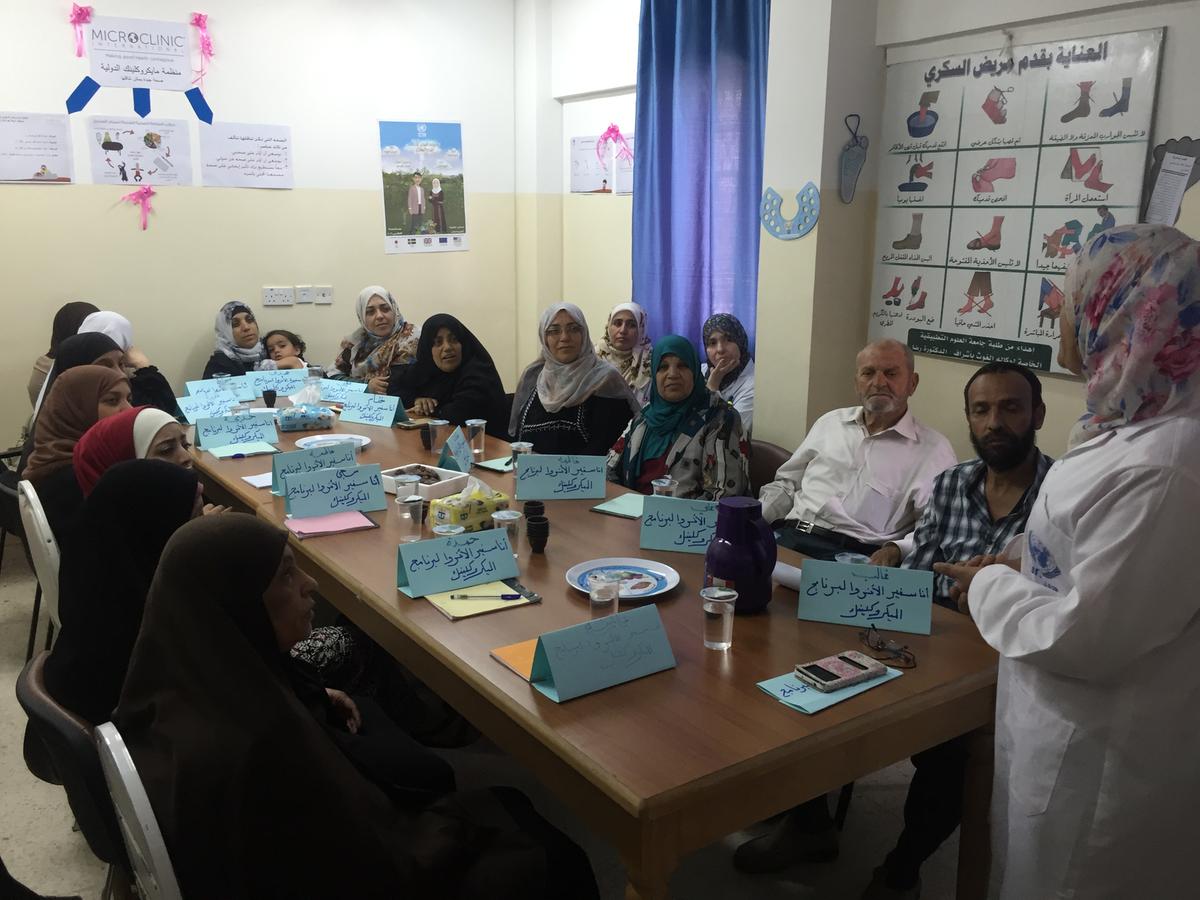Initiatives related to noncommunicable diseases such as diabetes and cardiovascular diseases are recognized as being given insufficient priority in relation to humanitarian crises.
Jordan is estimated to have received more than 1.3 million refugees as a result of the Syrian crisis, and most do not have adequate access to disease prevention and treatment services. Many of them live under conditions that increase the risk of developing or exacerbating these diseases. Overall, noncommunicable diseases are the greatest cause of death, accounting for almost 80% of all deaths in Jordan.
The Novo Nordisk Foundation has therefore awarded DKK 25 million to the World Diabetes Foundation to support the fight against noncommunicable diseases in Jordan. This will be achieved by developing Jordan’s first plan to integrate noncommunicable diseases into the overall humanitarian initiatives. The goal is to reduce the burden of noncommunicable diseases, including especially diabetes and high blood pressure, among refugees and other vulnerable groups in Jordan.
“By providing support, we want to help to improve the living conditions and future prospects for the Syrian refugees in Jordan. We also want to help create global awareness of the challenges noncommunicable diseases present in humanitarian crises and highlight appropriate solutions for patients,” says Hanna Line Jakobsen, Head of Social & Humanitarian, Novo Nordisk Foundation.
Leif Fenger Jensen, Managing Director, World Diabetes Foundation, says: “The grant from the Novo Nordisk Foundation will enable an ambitious and essential effort to integrate both preventing and controlling noncommunicable diseases into Jordan’s humanitarian initiatives. We look forward to realizing the initiatives in close collaboration with the Government of Jordan and numerous other local and international partners.”
Three initiative areas
The project goals will be achieved through initiatives in three areas.
- Disease prevention initiatives. Numerous activities that promote healthy lifestyles and stimulate improved knowledge, attitudes and practices related to noncommunicable diseases among refugees and other vulnerable groups in Jordan. The globally defined and most common risk factors will be especially emphasized: overweight, lack of physical activity and smoking. The disease prevention initiatives will also especially focus on children and adolescents and using social media and new technologies.
- Treatment. Interventions will be implemented that strengthen the treatment and care of people with noncommunicable diseases, especially focusing on diabetes and high blood pressure in primary health care. Equipment and trained personnel will be provided in 200 clinics located in areas with high concentrations of Syrian refugees and in refugee camps run by the United Nations High Commissioner for Refugees (UNHCR).
- Policies. The initiatives will support and promote the establishment of policies and strategies that integrate preventing and controlling noncommunicable diseases into Jordan’s overall humanitarian relief efforts and at the regional and international levels. One way this will be achieved is by linking research to the initiatives in Jordan and disseminating the knowledge created.
The project will contribute directly to meeting target 3.4 of the Sustainable Development Goals as follows: By 2030, reduce by one third premature mortality from noncommunicable diseases through prevention and treatment and promote mental health and well-being.
Increased support for humanitarian purposes
The grant for the World Diabetes Foundation and initiatives to combat noncommunicable diseases in Jordan are part of the Foundation’s new strategy for humanitarian and development grants. The strategy includes support for developing the occupational and social skills of young refugees through such initiatives as education and other learning opportunities to improve their quality of life and future prospects. In addition, the Foundation will allocate funds for emergency relief.
The Foundation plans to gradually increase its annual payouts in humanitarian and development aid, with these rising to DKK 200 million annually in 2023. Read more here.
About the World Diabetes Foundation
The World Diabetes Foundation was established in 2002 and is headquartered in Denmark. The Foundation is dedicated to preventing and treating diabetes in low-income countries by supporting projects and initiatives related to information and education, health promotion and capacity-building. To date, the Foundation has supported more than 500 projects in over 100 countries and collaborates with health ministries, civil society and international organizations.
Further information
World Diabetes Foundation:
Jakob Sloth Madsen, Senior Programme Manager, phone: +45 3079 2135, [email protected],
Bent Lautrup-Nielsen, Senior Advisor, +45 3075 0139, [email protected]
Novo Nordisk Foundation:
Christian Mostrup Scheel, Senior Press Officer, phone: +45 3067 4805, [email protected]








